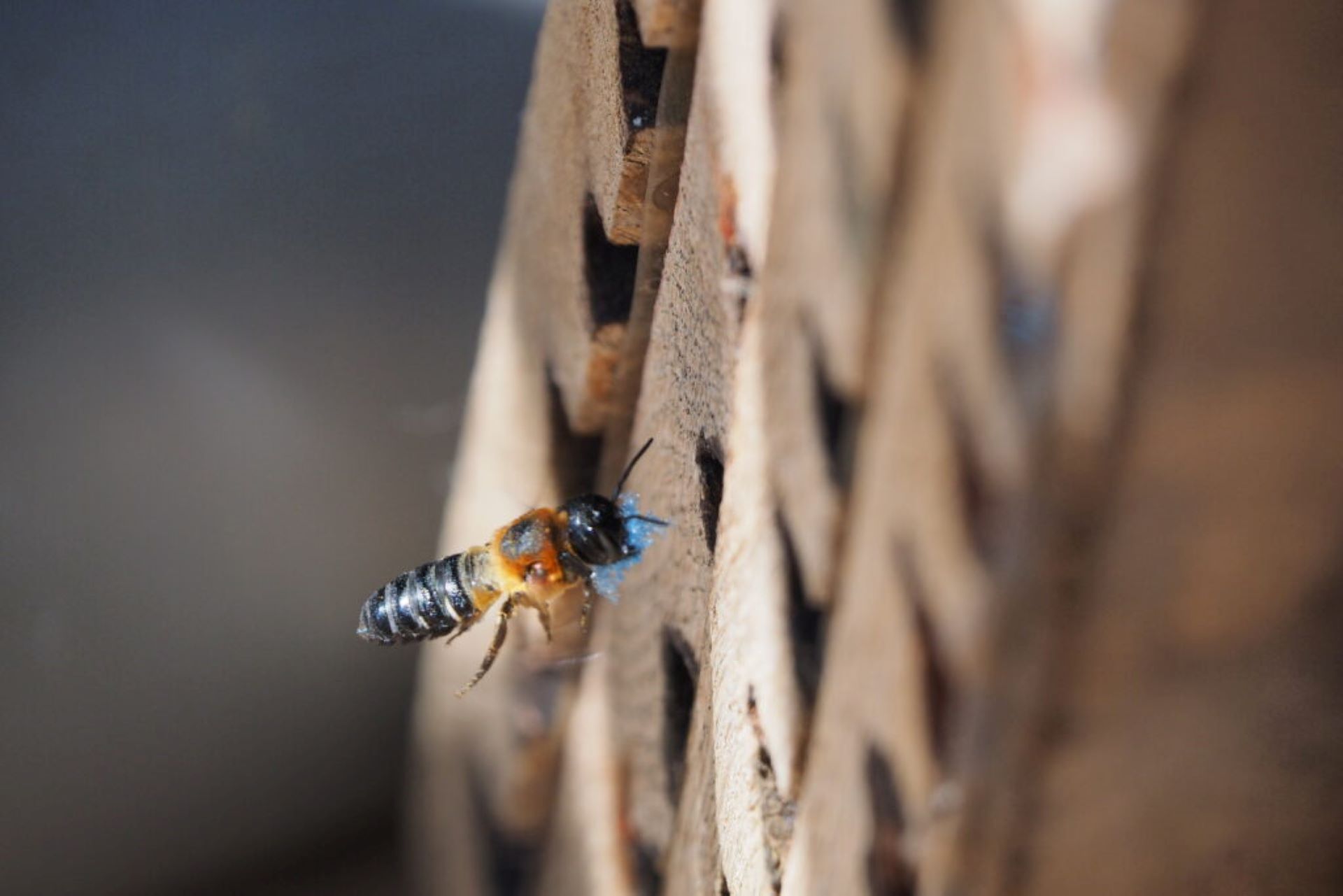

Photo credit: Felix Fornoff/University of Freiburg
The negative effects of plastic pollution are even greater than previously thought new study finding that nano- and microplastics pose a serious risk to biodiversity, agricultural production and global food security.
What’s happening?
The study, conducted by a team of international researchers, examined how small plastics influence the health and behavior of beesother pollinatorsand insects – and came to a disturbing conclusion.
According to the study’s findings, if bees and other insects ingest plastic particles from food or the air, it can damage their internal organs, weaken their immune systems and even change their behavior, impacting their ability to provide crucial services for local ecosystems and agriculture, such as pollination and pest control .
‘We find microplastic in the intestines of bees and see how wild bees use plastic to build nests’ said Alexandra-Maria Klein, co-author of the study and professor of nature conservation and landscape ecology at the University of Freiburg. “We therefore urgently need to investigate how this interacts with other stressors, such as climate changefor the bees and their pollination services.”
Why is the ingestion of microplastics by pollinators a concern?
Bees and other beneficial insects are needed to keep fragile ecosystems in balance. Flowering plants provide food and shelter for pollinators, which help the plants grow and reproduce by fertilizing them through cross-pollination.
Without pollinators, fruit and vegetable crops are at risk, especially as microplastics are piling up more and more into soil and water landscape plastic, rubber mulchfertilizers, sewage and atmospheric deposits that spread them over large areas. As the amount of microplastics in ecosystems continues to increase, so does the potential harm to pollinators, endangering the global food supply.
JOIN OUR NEWSLETTER
Your personal guide to a cleaner, cooler future
To put into perspective how miserable a world without agriculture would be, crops are responsible 80% of the food consumed by humans and are also necessary for feeding livestock, another crucial part of global food systems for the meat, eggs, milk, fur, leather and wool they provide. Not to mention that plants are responsible for that 98% of the oxygen we breathe, another essential part of human survival that would be affected by a decline or loss of the world’s pollinators.
What is being done against plastic pollution?
Big Ag is the leading cause of plastic pollution accumulating in soil and found to be used 12.5 million tons of plastic products per year. To reduce the amount of microplastics in pollinator habitats, the amount of plastic used by humans, especially large agricultural companies, must be addressed.
Experts believe This can be done by intentionally using and reducing plastic products, as well as by collecting, reusing and repurposing plastic products recycling by plastics to limit the amount of plastic particles that end up in the soil and water.
Do you think we use too much plastic in America?
Certainly
Just some people
Not really
I’m not sure
Click on your choice to see the results and give your opinion
Sustainable and environmentally friendly alternatives are even better solutions. An example of this is a biodegradable landscape sheet which is being developed by a team of biomolecular engineers with support from the US Department of Agriculture. Engineers are trying to create a landscaping sheet composed of biopolymers that break down naturally in soil. Researchers are even investigating how to make the landscape foliage nitrogen efficient, meaning that as it breaks down, it deposits essential nutrients into the soil to help crops grow.
While solutions are in the works, microplastics researchers and other environmentalists hope that governments around the world will soon recognize the dangers microplastics pose to pollinators and the global food supply, and implement policies to curb the use of plastic by Big Ag and other organizations to restrict. super polluters.
“However, it is already clear today that there is an urgent need for political control over plastic pollution,” says Klein said.
Join our free newsletter for good news And useful tipsand don’t miss it this nice list of simple ways to help yourself and help the planet at the same time.
Leave a Reply